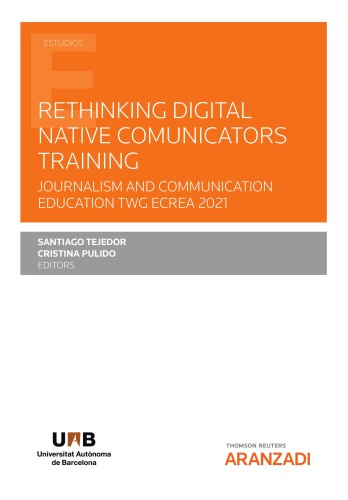- Ebook

The communicators' training is one the fields with more updates due to constant changes faced every year. Therefore, digital native students have competencies developed in an informal way that become a natural bridge to reinforce the professional competencies needed. The educational environment has undergone profound transformations in recent decades: specifically offering undergraduate and graduate courses in communication, as it faces new and rapidly evolving challenges. On the one hand, the training of future professionals in the field of communication and journalism has been directly affected by the technological changes introduced by cyberspace and the successive developments of the network: web 2.0 or social web, web 3.0 or semantic web and web 4.0 or the "internet of things". On the other hand, 20th-century teaching methods and 21st-century technology represent a generation gap like no other. Our students are digital natives. They grew up with computers and internet access and smartphones, social media and mobile devices and are not interested in traditional passive learning. Therefore, the role of communication and journalism education is not only to provide future journalists or communicators with new technological skills. Nevertheless, primarily to prepare them to adapt to a fast-moving world. Things can change almost month by month as the interface between humans, and the digital world gets closer and closer. This book collects the contributions of different university teachers of communication and journalism studies around Europe on the last challenges in this topic: a unique opportunity to be updated with a European overview.
-
FormatoEbook
-
EstadoNuevo
-
Isbn9788413911083
-
Peso356.7 KB
-
Número de páginas142
-
Año de edición2021
-
IdiomaInglés
-
FormatoEPUB
-
ProtecciónDRM
-
ReferenciaBKW73940
